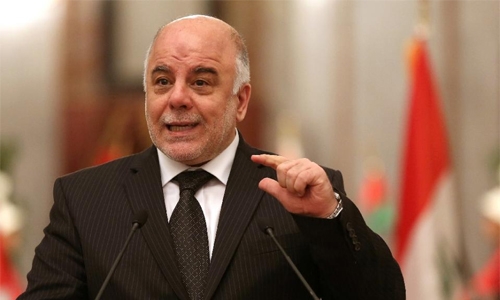Iraq PM sacks Baghdad security chiefs after deadly blast
Baghdad : Iraqi Prime Minister Haider al-Abadi sacked the head of the Baghdad security command and other top officials after a bombing in the capital killed 292 people, his office said on Friday.
Abadi issued "an order to relieve the Baghdad Operations commander of his position," as well as removing officials responsible for intelligence and security in the capital, a statement said.
The head of the Baghdad Operations Command was Lieutenant General Abdulamir al-Shimmari.
An official in Abadi's office said the others removed were the head of interior ministry intelligence for Baghdad and the official responsible for the capital in the national security adviser's office.
Iraq's interior minister tendered his resignation after the bombing, one of the deadliest to ever hit Iraq, but the Friday statement was the first announcing that officials were fired following the attack.
A suicide bomber detonated an explosives-laden minibus in a Baghdad shopping district early on Sunday as it teemed with people ahead of the holiday marking the end of the holy Muslim fasting month of Ramadan.
The blast, which was claimed by the Islamic State jihadist group, killed 292 people.
Authorities are still working to identify those killed in the attack, but Health Minister Adila Hamoud said on Thursday that the identities of 177 bodies had yet to be determined.
The initial blast killed a limited number of people, but raging flames spread and trapped people inside shopping centres at the site that lacked emergency exits, police Major General Talib Khalil Rahi said.
Interior Minister Mohammed Ghabban submitted his resignation following the bombing, and authorities also announced new security measures, the execution of five convicts and the arrest of 40 jihadists in an apparent bid to limit the fallout from the attack.
Ghabban criticised the security system as fundamentally flawed, saying he could no longer accept responsibility for the consequences and calling for a series of changes that would ultimately increase the ministry's power.
Related Posts

